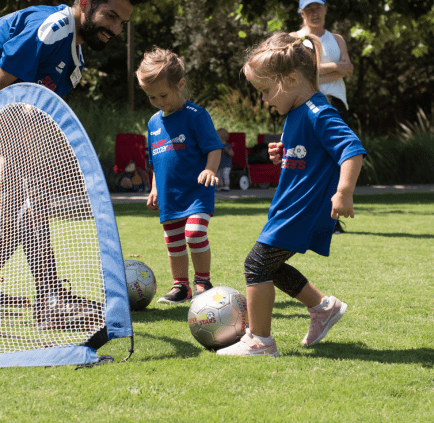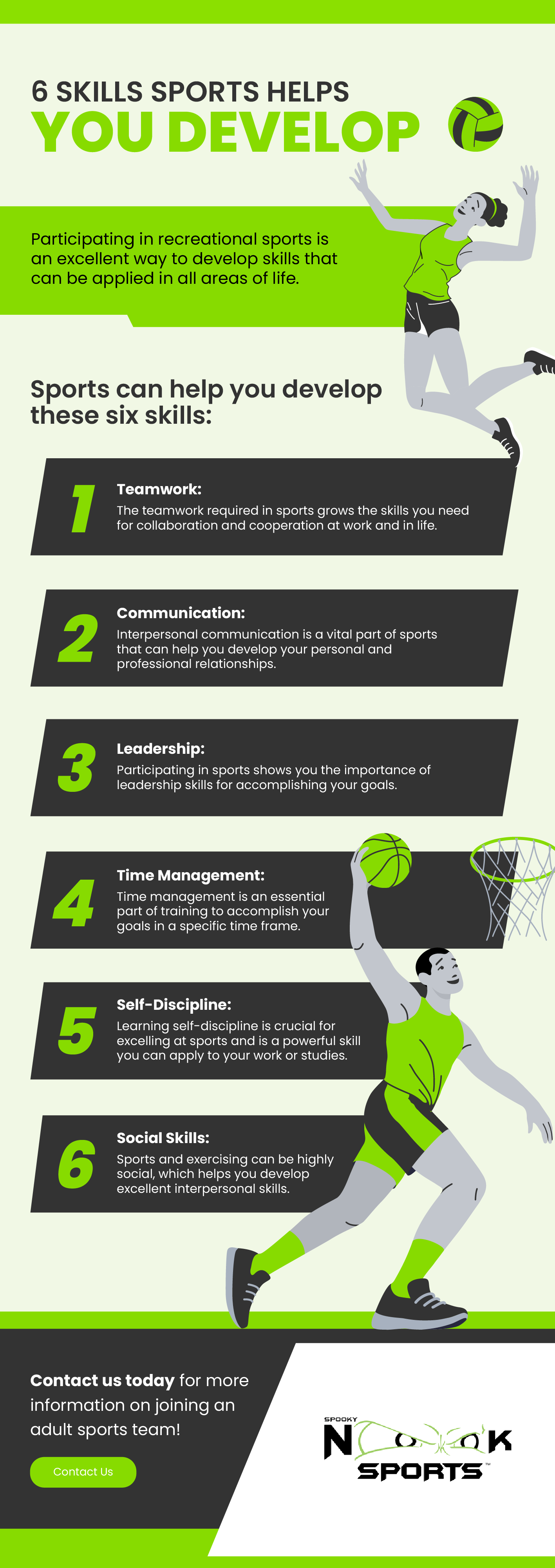Soccer is more than just a game. It is a powerful team sport.
Soccer helps players develop essential skill-related fitness goals. Participating in soccer offers numerous benefits beyond the thrill of the match. This sport requires agility, speed, balance, and coordination. Players must work together, enhancing teamwork and communication skills. Soccer’s dynamic nature demands quick thinking and precise movements, fostering cognitive and physical growth.
Whether you are dribbling past defenders or making strategic passes, each action contributes to overall fitness. By engaging in regular practice and matches, players improve their endurance, strength, and flexibility. Soccer is a holistic sport that promotes a healthy lifestyle while building crucial life skills. Dive into the world of soccer and discover the many ways it can enhance your fitness and personal development.

Credit: soccerstars.com
Introduction To Soccer As A Team Sport
Soccer is a team sport that brings people together. It is played with passion and skill. Teams work together to score goals. Each player has a role. They must pass, dribble, and shoot. This team sport improves many fitness skills. Players become faster, stronger, and more agile.
Brief History
Soccer, known as football in many countries, has ancient roots. Early forms of the game were played in China, Greece, and Rome. The modern game started in England in the 19th century. The first official rules, called the Laws of the Game, were written in 1863. These rules are still used today, with some changes over time.
Popularity Around The World
Soccer is the most popular sport in the world. It is played in almost every country. Millions of people watch soccer matches on TV. The FIFA World Cup is the biggest soccer event. It happens every four years and brings nations together. Soccer is more than a game. It is a way of life for many people. Kids and adults play it in streets, parks, and stadiums.

Credit: www.inspiresport.com
Core Skills In Soccer
Soccer is not just about kicking the ball. It involves mastering core skills. These core skills help players improve their fitness and overall performance. Let’s explore some of the essential skills in soccer.
Dribbling Techniques
Dribbling is a crucial skill in soccer. It allows players to navigate the field and evade opponents. Good dribbling techniques can make a difference in the game. Here are some key dribbling techniques:
- Close Control: Keeping the ball close to your feet is essential. It helps in maintaining possession.
- Change of Direction: Quick turns can confuse defenders. Practice changing direction swiftly.
- Speed Dribbling: Dribble at high speed while maintaining control. This is vital for counter-attacks.
Passing Accuracy
Passing is another vital skill in soccer. Accurate passing keeps the game fluid and creates scoring opportunities. Here are some tips for improving passing accuracy:
- Proper Technique: Use the inside of your foot for most passes. This ensures better control and accuracy.
- Body Position: Your body should be facing your target. This helps in directing the ball accurately.
- Practice: Regular practice improves muscle memory. Consistent practice leads to better accuracy.
Developing these core skills can enhance a player’s performance. Soccer is all about teamwork and individual skills play a big role.
Fitness Goals In Soccer
Fitness goals in soccer are more than just physical improvements. Soccer players strive to achieve peak performance through various fitness goals. These goals not only enhance their game but also contribute to their overall health.
Cardiovascular Endurance
Cardiovascular endurance is crucial for soccer players. Players need to run across the field constantly. Good endurance allows them to maintain a high level of performance. It helps them recover quickly after sprints. Training for endurance involves long runs and interval training.
Building cardiovascular endurance helps players last through the entire game. It also reduces the risk of fatigue-related injuries. This makes it a key fitness goal for soccer athletes.
Muscular Strength
Muscular strength is vital for soccer players. Strong muscles support powerful shots and tackles. Strength training includes exercises like squats and lunges. These exercises build the legs and core muscles.
Muscular strength helps players improve their speed and agility. It also provides stability and balance on the field. Strong muscles also play a role in injury prevention. This is why strength training is essential for soccer fitness goals.

Credit: www.spookynooksports.com
Team Dynamics
Soccer is more than just a physical game; it’s a sport that thrives on team dynamics. Understanding how players interact on the field is essential. This interaction not only improves game performance but also develops skill-related fitness goals. Let’s explore how communication and teamwork play vital roles.
Communication On The Field
Effective communication among players is crucial. It helps in making quick decisions. Players must use clear and simple language. This ensures that everyone understands the plan. Verbal cues, like shouting “pass” or “shoot,” are common. Non-verbal cues are also important.
Eye contact and hand signals guide teammates. They help in maintaining the flow of the game. Good communication keeps everyone on the same page. It reduces errors and improves coordination.
Role Of Teamwork
Teamwork is the backbone of soccer. Each player has a specific role. Forwards, midfielders, defenders, and goalkeepers must work together. They form a cohesive unit. When players understand their roles, they perform better. It leads to a stronger team performance.
Here are some key aspects of effective teamwork:
- Trust: Players must trust each other’s abilities.
- Support: Always back up your teammates.
- Coordination: Move in sync with the team.
Good teamwork also builds a positive team culture. This culture boosts morale and motivation. It encourages players to give their best effort.
In summary, team dynamics in soccer are vital. They enhance both individual skills and team performance. Good communication and teamwork are the keys to success.
Skill-related Components
Soccer is not just about scoring goals. It involves a range of skill-related components that improve fitness. These components are crucial for players to perform well on the field. Let’s explore some key aspects like agility, balance, speed, and power.
Agility And Balance
Agility and balance are vital in soccer. Players must change direction quickly. They dodge opponents and control the ball. Good balance helps players stay steady. Even when moving fast, they must avoid falling. These skills reduce the risk of injury. They also help players make swift movements.
Speed And Power
Speed is essential for soccer players. They need to outrun opponents. Quick sprints can make a difference between a goal and a miss. Players also need power. Powerful kicks send the ball far. Strong legs help in pushing through defenders. Speed and power work together. They make a player more effective on the field.
Training Methods
Soccer is not just about kicking a ball; it’s about developing skills and achieving fitness goals. Training methods play a crucial role in this journey. They help players improve their performance and work together as a team. Below, we explore two essential training methods that can elevate a soccer player’s game.
Drills And Practice
Drills are fundamental in soccer training. They help enhance skills like dribbling, passing, and shooting. Regular practice of these drills ensures players can perform under pressure during a match.
- Dribbling Drills: Improve control and agility with the ball.
- Passing Drills: Enhance accuracy and teamwork.
- Shooting Drills: Increase precision and power in shots.
Practice sessions also include small-sided games. These games simulate real match conditions and help players make quick decisions. They also improve communication and coordination among team members.
Strength And Conditioning
Strength and conditioning are vital for a soccer player’s fitness. These training methods help build endurance, speed, and strength. A well-conditioned player can maintain a high level of performance throughout the game.
- Strength Training: Focuses on building muscle strength and power.
- Cardio Exercises: Enhances cardiovascular endurance, allowing players to run longer distances.
- Flexibility Exercises: Reduces the risk of injuries and improves overall agility.
Strength training includes exercises like squats, lunges, and deadlifts. These exercises target major muscle groups used in soccer. Cardio exercises, such as running and cycling, improve heart health and stamina. Flexibility exercises, including stretching and yoga, keep muscles limber and ready for action.
By combining these training methods, soccer players can develop their skill-related fitness goals. They become stronger, faster, and more agile, ready to face any challenge on the field.
Benefits Of Soccer
Soccer offers numerous benefits that extend beyond the field. It is not just about scoring goals. It also helps in achieving various fitness goals. This blog post will highlight the many advantages of playing soccer.
Physical Health
Soccer is a high-intensity sport. It improves cardiovascular health. Players run, sprint, and jog during the game. This boosts heart strength and increases lung capacity. It also enhances muscle strength and flexibility. Soccer involves various movements. These include kicking, jumping, and twisting. This helps in developing overall body coordination.
| Physical Health Benefits | Description |
|---|---|
| Cardiovascular Health | Running and sprinting strengthen the heart and lungs. |
| Muscle Strength | Kicking and jumping develop muscle power and flexibility. |
| Body Coordination | Various movements improve overall coordination. |
Mental Well-being
Soccer is not just good for the body. It also benefits the mind. Playing soccer reduces stress. It releases endorphins. These are natural mood lifters. Soccer also promotes teamwork. It helps in building social connections. This can improve self-esteem and confidence.
- Stress Relief: Endorphins help in reducing anxiety.
- Teamwork: Working together builds social connections.
- Self-esteem: Success on the field boosts confidence.
Frequently Asked Questions
What Skills Does Soccer Develop?
Soccer develops coordination, agility, and endurance. It also enhances teamwork, communication, and strategic thinking. These skills contribute to overall fitness.
How Does Soccer Improve Fitness?
Soccer improves cardiovascular health and builds muscle strength. It involves running, sprinting, and quick direction changes, which boost fitness levels.
Is Soccer Good For Kids’ Development?
Yes, soccer is excellent for kids. It promotes physical fitness, social skills, and discipline. It also teaches teamwork and cooperation.
How Often Should You Play Soccer?
Playing soccer 2-3 times a week is ideal. This frequency helps maintain fitness and improve skills without overtraining.
Conclusion
Soccer builds teamwork and fitness skills. It improves coordination, balance, and agility. Players learn discipline and persistence. They develop social connections and trust. Each game strengthens their body and mind. Soccer offers fun and exercise together. It’s a sport for all ages.
Join a team and enjoy the benefits. Play soccer, stay healthy, and make friends.



